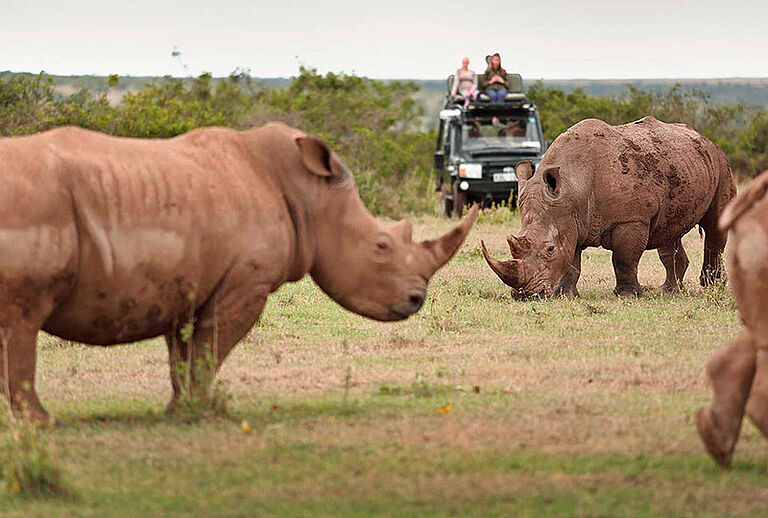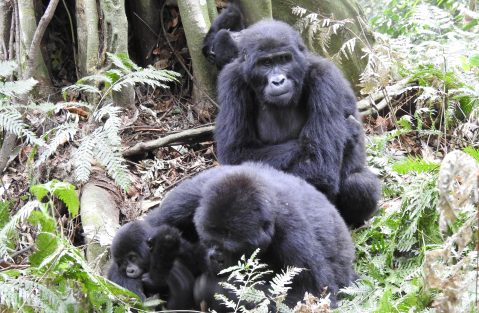
Packing for an African safari is so different from packing for other ordinary trips and most often, first-time travelers face challenges. There are several things to be put into consideration while on an African safari and essentially, safari-goers have to observe weight restrictions- a typical weight restriction is 15kgs per tourist and this should include camera equipment plus carry-ons. The other challenge is choosing the kind of clothes to wear- a typical African safari requires environmentally friendly clothing and visitors must dress in a respectful way.
Packing list for an African safari 2022
Valid documents
Like traveling to other countries in the world, most Sub-Saharan African states also require tourists on African safaris to have valid passports. The passports should be at least 6 months beyond the travel dates of a visitor in Africa. Other than passports, other essential documents worth obtaining or carrying for your African safari include a yellow fever certificate, COVID-19 vaccination certificates, e-tickets, travel insurance, and travel plan. Visas are among other essential documents visitors on an African safari should pay close attention to. Visas are needed because they are required if you are to have entry to most of the countries in Africa.
Cash
Most of the African countries have not transitioned from cash to modern technologies and most of the transactions are carried out using cash. While in the bush enjoying a wildlife safari in Africa, credit card machines are nowhere to be seen. ATMs are available in urban centers and to ease your transaction while in the destination you must exchange your dollars, pounds, and sterling for local currency. This can help you in case you want to purchase some small items such as drinks, toiletries, and others.
What to carry for 2 weeks African safari?
The main reason why most visitors travel to Africa is to enjoy game viewing or game drive/wildlife viewing and the popular destinations for game safaris include Uganda, Kenya, Tanzania, Botswana, South Africa, Zimbabwe, Zambia, Malawi, and South Sudan among others. You immerse yourself into the wild to see a diversity of wildlife and this is what differentiates a typical African safari from the normal tours in other destinations. If you plan to undertake a 2-week wildlife or gorilla safari holiday in Africa, then the following items must be carried; insect repellent preferably DEET, 3 layering tanks/t-shirt, a duffel/soft-sided bag, a light scarf, a utility jacket, 1 to 2 long-sleeved shirts, 2 pairs of pants, toiletries, sunscreen, moisturizer, wide brim hat, first aid kit, USB flash drive, waterproof dry bag, good hiking shoes, and others.
Luggage & other essentials
When packing, be mindful of the weight as some destinations are strict on it especially if you plan to undertake bush flight safaris in places such as Masai Mara National Reserve or Serengeti National Park in Tanzania. Most small planes require a specific weight size for example SafariLink or AirKenya are strict on weight to carry but they charge a small fee. We advise our clients to carry soft-sided luggage which makes it easier to be put in compartments.
Bric’s X-bag 22 folding duffel
This is essential for tourists who plan to embark on an African safari in the Masai Mara National Reserve. This is waterproof, sturdy, and classy. You can easily fold it down into a small zippered pouch making it easier to pack. If you heading to Tanzania or Kenya for an African safari holiday, try as much as you can to avoid plastic bags.
African safari clothing
Clothes should be left out on your packing list for an African safari. When choosing the attire to put on an African safari, you must be mindful of African culture- dress decently in a manner that doesn’t affect people’s culture. Respect for African culture is key. When packing be mindful of the weight airlines require and often, luggage of 15-30kgs is allowed while some aircraft only accept luggage of 12-15kgs. There are also laundry services offered at most lodges or hotels in most of the African safari destinations but at visitors’ cost. This means you don’t need to worry in case you want to change clothes any day. The preferred clothing for an African safari holiday includes long pants and long-sleeved shirts- these are essential in protecting you from insect bites or scratches while on walking safaris. Avoid shorts or skirts if you are heading for an African holiday- they are only good for game drives. When choosing clothes, avoid bright colors and find those that blend with the environment.
Safari footwear
There are many ways of exploring Africa- tourists can engage in walking safari or guided game viewing. If you are heading for walking, hiking, gorilla trekking or chimpanzee tracking, then we recommend sturdy hiking boots that should be waterproof.
Safari hat
Find a good safari hat that is wide enough to protect you from scorching sunshine while you enjoy your African safari. It should be covering your face and neck. You may also need swimsuits, and casual clothes, especially for tourists who plan to spend a night in luxury accommodation facilities with swimming pools.
Prescribed medicines/medical kit
Carry prescribed medication on your African safari just in case of any emergency. You need anti-malaria medicine, anti-diarrhea, and others. The medical kit or first aid kit always contains a variety of these plus bandages, plasters, and others.
Camera and other gadgets
A complete African safari is one that you return home when you have taken pictures. The pictures shall always keep reminding you of that incredible safari holiday you had in Africa and you can achieve this when you have the best camera. If you are heading for extraordinary primate adventures such as gorilla trekking in Uganda, Rwanda, and the Democratic Republic of Congo or chimpanzee tracking, we recommend good cameras with no flashlight. You may also have a pair of binoculars- Africa is one of the world’s leading birding destinations and expects to see a diversity of bird species.
Waterproof bag
A waterproof bag large enough is essential to help you pack and protect your gadgets such as cameras. This is because rains in most of the African safari destinations are unpredictable and early preparation is essential.
Plug converters
Most safari lodges and hotels in Africa offer many universal plug adaptors for tourists to use while in their rooms or tents though you can also carry your own. The electric voltage in Africa is usually 220-240volt though this may differ from country to country with the plug type.


